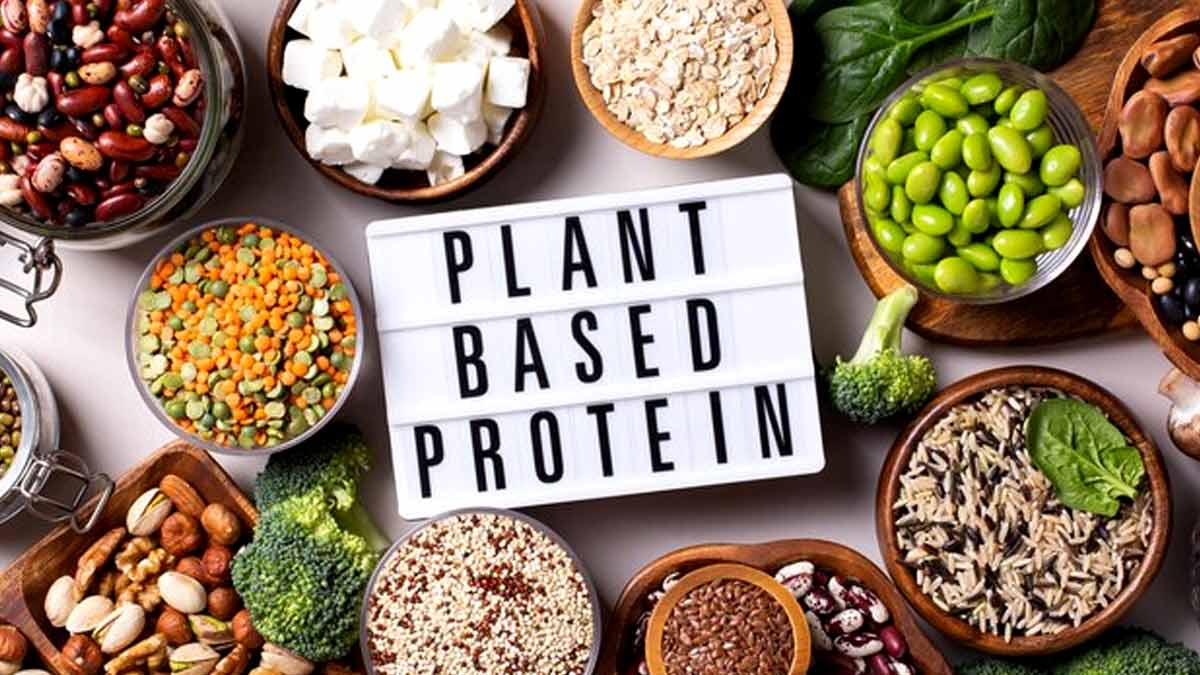
Plant-based protein has become a prominent player on the nutritional stage, offering a wide array of options for those seeking sustainable and wholesome sources of nourishment. However, many misunderstandings exist surrounding the health, taste, and safety of adopting a plant-based diet. We spoke to Raveena Taurani, Culinary Nutritionist, Founder and Chef, Yogisattva Cafe, Bandra, Mumbai, who debunked myths about plant-based protein and stated the facts.
Taurani said, “Protein is a key macronutrient made up of amino acid building blocks that keep your body in good working order. Proper protein intake is important in building and repairing muscle tissue after exercise or injury.”
Myths And Facts About Plant-Based Protein

Myth 1: You can’t get enough protein without meat
Fact: Taurani said, “Plant-based foods are capable of supplying ample protein to individuals, including those with active lifestyles. If you are consuming enough calories, it is difficult to be protein deficient. The important thing is hitting your required macronutrients (carbohydrates, fats, fibre, water, and protein) and micronutrients (vitamins and minerals).”
Myth 2: Meat, dairy, and eggs are the best sources of protein
Fact: Even individuals leading active lives can obtain sufficient protein from plant-based foods, such as seitan, tofu, tempeh, edamame, lentils, beans, grains, nuts, and seeds. Protein is also present in less visible meals like peas, broccoli, and other green vegetables, as well as in pasta and even potatoes.
Also Read: Plant-Based Protein: Expert Lists Protein Options You Should Eat For Athletic Performance

Myth 3: High-protein diets are good for weight loss
Fact: According to the American Dietetic Association, carefully designed diets that minimise or omit animal products are both healthy and nutritionally complete, comparable to diets that include them. Also, plant-based diets are linked to reduced occurrences of heart disease, high blood pressure, cancer, and type 2 diabetes.
Taurani said, “Losing weight does not necessarily mean being healthier. Weight changes during the day, from day to day, and from person to person. Having a diverse diet that encompasses all essential food groups plays a vital role in effectively fueling, nourishing, and restoring your body. Hence, focusing solely on one category while excluding another isn't typically as beneficial as maintaining a well-rounded diet.”
Myth 4: A plant-based diet lacks essential vitamins and minerals
Fact: Plants rank as the most nutrient-rich foods available to us. For instance, leafy greens and legumes provide ample calcium, iron, and zinc; berries boast high levels of vitamin K and manganese, while tropical fruits like mangoes and pineapples are rich in vitamin C. However, plant-based individuals need to supplement with vitamin B-12, as this vitamin originates from the soil and is not naturally found in plant-based diets.
Also Read: Eating Protein Vs Drinking Protein: Expert Explains Which Is Better
What Is The Individual Protein Requirement?

The average individual needs a minimum of 1g of protein per kg of body weight, as per the Recommended Daily Amount (RDA). So someone who weighs 54 kg needs around 54g of protein per day.
Depending on your dietary objectives and exercise routine, your recommended protein consumption may also differ. For instance, individuals aiming to increase their power and muscular mass may need more protein.
Bottomline
Taurani concluded, “Fad diets are quick to demonise specific foods (or food in general). However, your body requires calories to function effectively. Consuming carbohydrates and other nutrients is equally as significant as consuming protein. A healthy body should result from putting an emphasis on nutrient-dense whole foods, staying active, and being aware of your overall calorie intake.”
Disclaimer
The information in this article is shared by a registered healthcare professional and is for informational purposes only. Hence, we advise you to consult with your expert for a diet plan tailored to your needs and body type.







